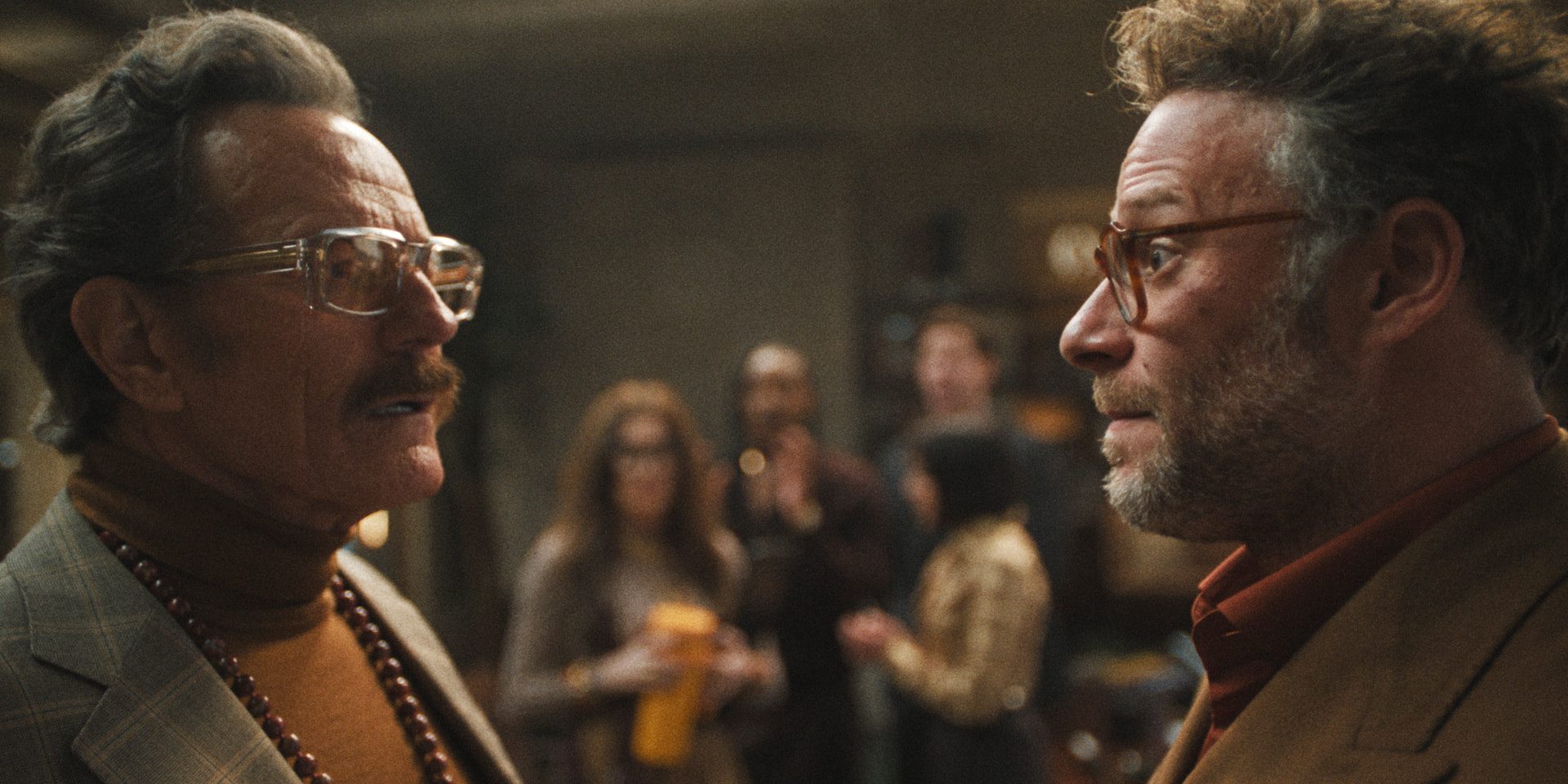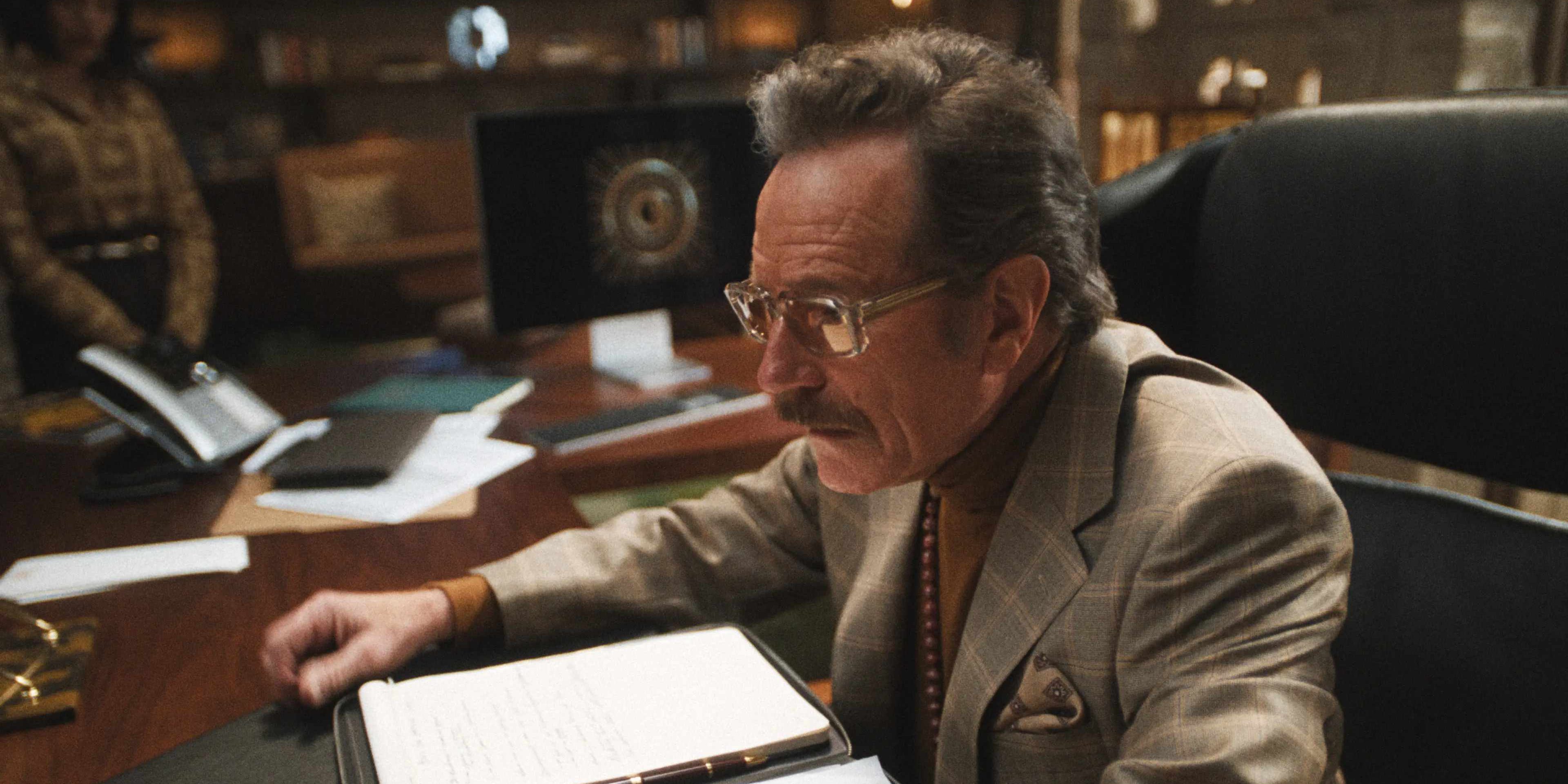Apple TV+’s ‘The Studio’ is a comical exploration of life as a high-profile studio head at a major Hollywood studio, Continental Studios. The show is mainly seen through the eyes of Matt Remick, an executive with a desire to form positive relationships with the directors and actors working under him. When he is appointed as the chief of Continental by his eccentric billionaire boss, Griffin Mill, Remick must learn to juggle the artsy side of filmmaking with the commercial requirements. However, the latter has his own way of doing things, forcing the protagonist into a tight corner. As a result, Continental Studios and its CEO play a big part in the story, often leading to some awkward situations, as Remick gets caught in the crossfire between two worlds.
Continental Studios is a Fictional Studio at the Heart of the Show
While ‘The Studio’ tries to mix fact with fiction in specific ways, it largely leans into the latter, with most of the events and characters drawn from the writers’ imagination. This extends to the Hollywood studio at the center of the Apple TV+ series, Continental Studios. It is a fictional movie company created by scriptwriters Seth Rogen, Evan Goldberg, Frida Perez, Peter Huyck, and Alex Gregory. Rogen and Goldberg drew from personal experiences in Hollywood to craft their satirical drama, which they then superimposed over the workings of a fake movie studio. For real-life inspiration, they stated that they looked specifically at their time at Sony Pictures Studios, among many other inspirations. Thus, it is likely that Continental Studios is loosely based on a contingent of real-life movie companies that are popularly known and well-regarded globally.

Some other Hollywood studios that vaguely resemble Continental are Warner Bros. and Universal Studios, with the latter even sharing some stylistic similarities in their names. Each of these companies shares some facet or element with the fictional studio at the heart of the series. However, Continental remains separate owing to its roots as a fictional company. The creative team adds more weight to the company’s realism by introducing real-life directors and actors into the story, like Martin Scorsese, Nick Stoller, Sarah Polley, and Greta Lee. They are each directly working on or trying to get projects sanctioned by Continental. It adds another layer of authenticity, even though most of it is make-believe. Ultimately, the goal is to craft an environment that feels alive and believable, which the studio does in abundance despite its fictional status.
Griffin Mill: A Colorful Boss With High Expectations
Like the company at the center of the drama, Griffin Mill, the main boss of Continental Studios, is a fictional character crafted by Seth Rogen, Evan Goldberg, Frida Perez, Peter Huyck, and Alex Gregory. In the show’s beginning, he promotes Matt Remick to the post of studio head after the former boss, Patty Leigh, is let go. One of his distinctive qualities – the peacock-like fashion sense – was added later in the script. Rogen admitted that the role was originally intended to be much more straightforward without any sense of panache. However, a real-life figure influenced the writer’s desire to dress Mill in a more eye-catching attire – David Zaslav, the CEO of Warner Bros. Discovery. He said that after seeing Zaslav in “a suede cowboy jacket with big flashy glasses with gold on them,” he decided to change Mill’s entire get-up.

Rogen explained, “‘If David Zaslav dresses like this, then we’re being a little too conservative in our choices with Bryan Cranston’s character.’ So, we let him go to town.” While moving away from the character’s wardrobe choices, the actor/writer also claimed that Mill’s eccentric presence matches the energy and vibe of most real-life CEO-type figures in the entertainment space. The character feels larger than life in several moments. However, to a degree, it is meant to represent the bombastic personality of a man who is dictated by his whims. His ability to apply pressure on Remick adds to the drama and amusement of the series. It also showcases how difficult it can be to maintain artistic integrity when so many people call the shots on a project. However, his narrative prominence still does change the fact that he is fictional in conception.
Read More: Was Kool Aid Really Used in the Jonestown Massacre, Explained


